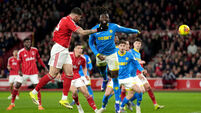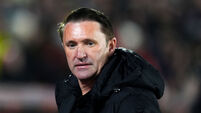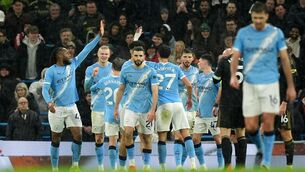Robbie Keane still chasing his goals

With Robbie Keane weighing up an offer to come in as Jonathan Woodgate’s assistant at Middlesbrough — a move which, of crucial importance, he stresses, would allow him to continue in his role as a coach on Mick McCarthy’s Ireland staff — the 38-year-old Dubliner is on the brink of taking another step along the road he has long intended to follow, from playing to coaching and, ultimately, to management.
And being Robbie Keane, with all that he has achieved in the game, he has the luxury as he plots that course of being able to tap into the knowledge, experience, and wisdom of some of the best-known names in the business.














